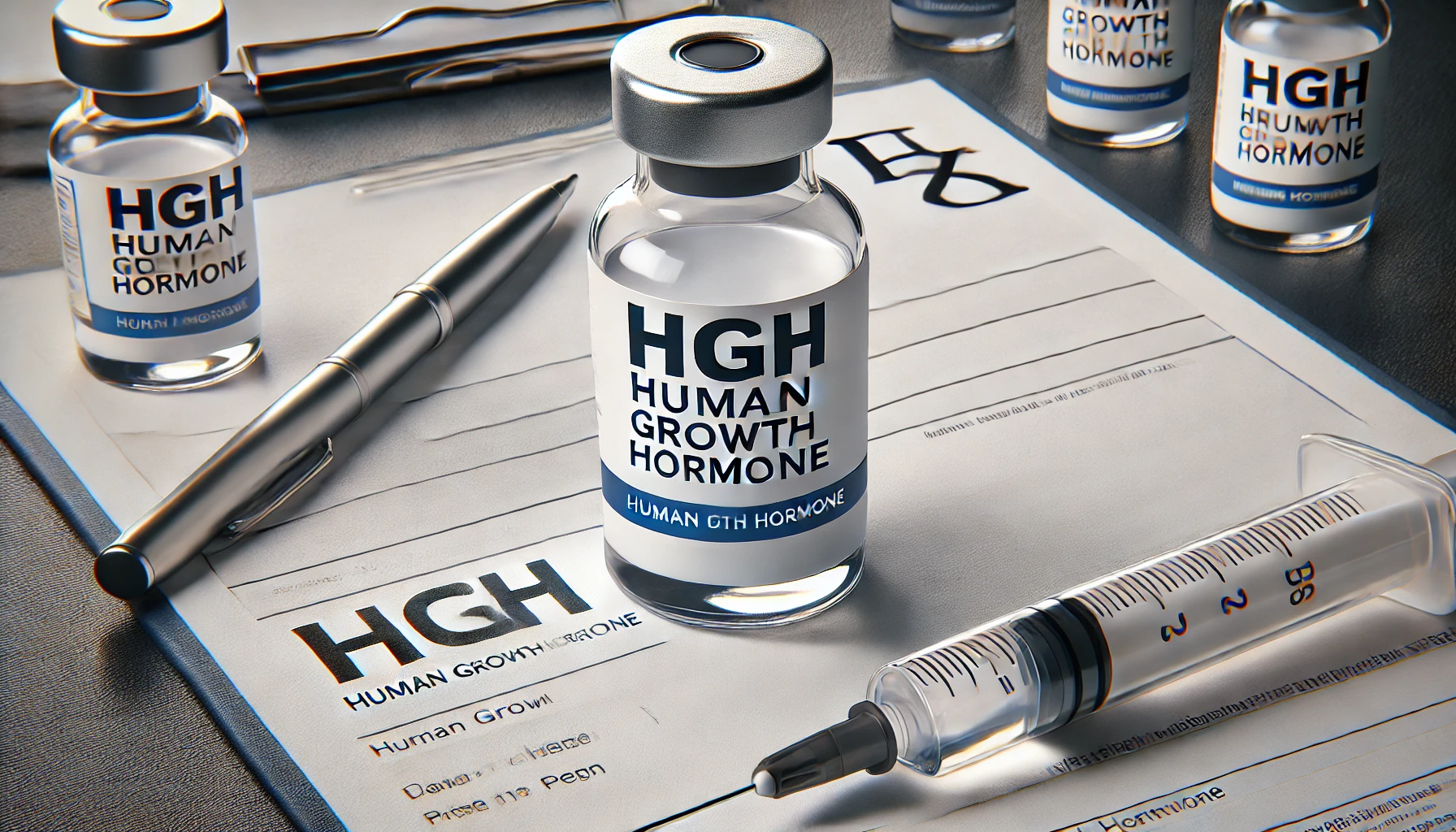Health Notice: This article was written using the Consensus AI Academic Search Engine. It is intended solely for informational purposes and should not be considered medical advice. Always consult a licensed healthcare provider for diagnosis, treatment, or medical guidance. Please refer to the full Disclaimer at the end of this article.
HGH therapy offers significant benefits for growth and development in children, as well as metabolic and cardiovascular improvements in adults. However, the potential risks, including cancer and side effects, necessitate careful consideration and monitoring. Ongoing research continues to expand the therapeutic applications of HGH, promising new avenues for treatment in both pediatric and adult populations.
Human Growth Hormone (HGH) is a peptide hormone that stimulates growth, cell reproduction, and cell regeneration in humans. It is crucial for human development and is used therapeutically to treat various conditions. This article explores the benefits, risks, and uses of HGH, drawing on recent research findings.
Benefits of HGH
Growth and Development in Children
HGH therapy has been shown to significantly improve growth and development in children with various growth deficiencies. For instance, children with Prader-Willi syndrome (PWS) experience improved linear growth, body composition, and metabolic parameters with HGH therapy1. Similarly, HGH is effective in treating growth hormone deficiency (GHD), Turner syndrome, idiopathic short stature, and chronic renal failure, leading to increased height velocity and improved final height outcomes2 5.
Nutritional and Metabolic Improvements
In adults, HGH therapy has demonstrated benefits in improving nutritional status and metabolic health. For example, in patients undergoing hemodialysis, HGH treatment significantly increased lean body mass (LBM) and serum albumin levels, improved quality of life, and reduced cardiovascular risk factors3. Additionally, HGH can prevent protein catabolism induced by glucocorticoid treatments, thereby maintaining positive protein balance4.
Cardiovascular and Muscular Benefits
HGH has shown promise in improving cardiovascular health and muscle mass. In patients with severe heart failure and cardiac cachexia, HGH therapy improved body weight, muscle bulk, exercise tolerance, and myocardial function8. Moreover, HGH replacement in adults with GHD has been associated with improved quality of life, skeletal health, and reduced cardiovascular risk factors9.
Risks of HGH
Cancer Risks
There are concerns about the potential carcinogenic effects of HGH. A large cohort study found increased cancer incidence and mortality in patients treated with recombinant HGH, particularly in those with a history of cancer7. However, the study did not find a clear increased risk in patients without previous cancer, suggesting that the relationship between HGH and cancer risk requires further investigation.
Side Effects and Antibody Formation
While HGH therapy is generally well-tolerated, it can have side effects. These include the development of neutralizing antibodies to HGH, which can reduce its efficacy10. Other potential side effects include joint pain, insulin resistance, and increased risk of diabetes.
Uses of HGH
Approved Pediatric Indications
HGH is approved for several pediatric conditions, including GHD, idiopathic short stature, Turner syndrome, PWS, and chronic renal insufficiency5. Early and continuous treatment is recommended to achieve the best outcomes in growth and development6.
Investigational Uses
Emerging research is exploring the use of HGH in other conditions such as cystic fibrosis, juvenile idiopathic arthritis, and inflammatory bowel disease5. These investigational uses aim to leverage the anabolic and metabolic effects of HGH to improve patient outcomes in these chronic conditions.
Adult Growth Hormone Deficiency
In adults, HGH replacement therapy is used to treat GHD, with benefits including improved quality of life, increased bone density, and reduced cardiovascular risks9. Long-term studies suggest that these benefits are sustained over several years, highlighting the importance of ongoing HGH therapy in managing adult GHD.
Disclaimer
The content in this blog post was generated using Consensus, an AI-powered academic search engine, and is based on publicly available scientific literature. While we strive to provide accurate, up-to-date, and well-researched information, this content is intended for informational and educational purposes only.
It does not constitute medical advice, diagnosis, or treatment. Always consult a qualified healthcare professional before making decisions related to any medical condition, treatment, or medication.
The AI system’s analysis may not account for all perspectives, ongoing research, or individual circumstances, and should not replace professional expertise. Neither the blog publisher nor the developers of the Consensus AI tool are liable for any decisions or actions taken based on this content.
Use of this information is at your own risk. Where provided, citations link to original scientific studies for reference only—these should be reviewed independently and interpreted with the support of a qualified medical or research professional.
If you are experiencing a medical emergency, please seek immediate care from a healthcare provider or call emergency services.
